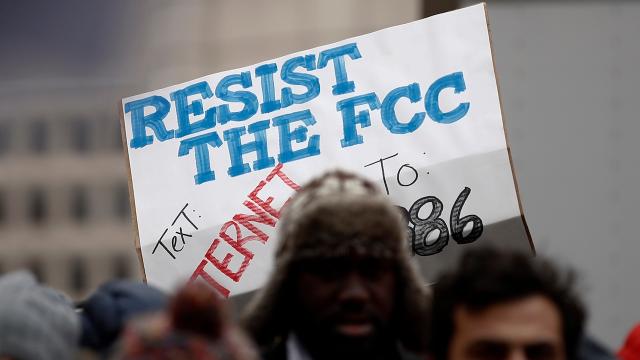A trade group representing more than 40 of the US’ biggest tech companies announced last week plans to intervene in a lawsuit against the US Federal Communications Commission (FCC) over its 2017 order dismantling net neutrality protections for American consumers.
The announcement by the Internet Association (IA) came less than a day after the FCC published the full text of the Restoring Internet Freedom Order (RIFO) on its website.
Michael Beckerman, CEO of the IA, which represents Amazon, Google, and Netflix, among other top tech firms, said the rules FCC order “defies the will of a bipartisan majority of Americans and fails to preserve a free and open internet.”
Beckerman added: “IA intends to act as an intervenor in a judicial action against this order and, along with our member companies, will continue our push to restore strong, enforceable net neutrality protections through a legislative solution.”
As an intervener, the IA would not be party to the lawsuit itself but is asserting its right to weigh in on the case in order to protect its members’ interests, which would clearly be impeded by disposition of the case.
The legal battle will take place months from now in a court yet to be determined. The number of litigants is also currently unknown – interested parties have another 50 days or so to file if they wish to join the suit. Among those who’ve declared their intent to file is Free Press, a pro-net-neutrality advocacy group.
“We’ll be going to court soon to challenge the FCC and ramping up pressure on Congress to throw the rules out altogether,” Free Press President Craig Aaron told Gizmodo. “[FCC Chairman] Ajit Pai has awakened the public, now Net Neutrality is a kitchen-table issue, and the outcry is only going to get louder.”
It’s worth noting, the IA’s call for a “legislative solution” runs counter to the plans of some net neutrality advocacy groups that are focused instead on merely overturning the RIFO in Congress using the Congressional Review Act. (The prospect of a law being passed that truly protects net neutrality is a longshot in a unified Republican government.)
For instance, legislation introduced by Rep. Marsha Blackburn, Republican of Tennessee, purports to enshrine net neutrality protections into law but actually opens up the door to paid prioritisation (read: “fast lanes”) for companies that pay to have their services delivered at greater speeds, which many experts claim is an innovation-killer, particularly for new startups.
The IA previously applauded Blackburn for “moving this conversation forward,” while adding that her bill “does not meet the criteria for basic net neutrality protections.”
This is a developing story. Check back for updates.
